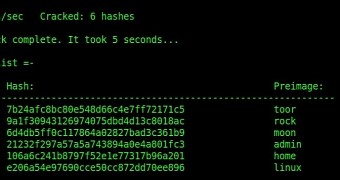A federal court in San Jose, California, has approved a preliminary settlement, with a fund set at $1.25 / €1.1 million, in a class-action lawsuit against LinkedIn from premium users as a result of an older password leak.
6.5 million hashed representations (unsalted SHA1) of passwords were published on a Russian forum in 2012, and 800,000 of them belonged to LinkedIn premium subscribers, the social network found out in its investigation at the time.
Although hashes are designed to be one way and not betray the original input, a dictionary attack could calculate the hashes for the text strings and match them with the content of a stolen database.
Little money can be gained
In the wake of the incident, a class-action lawsuit was initiated by LinkedIn users that had premium accounts between 2006 and 2012.
“You are included if you are an individual or entity in the United States who paid a fee to LinkedIn for a premium subscription at any time between March 15, 2006 and June 7, 2012,” says the official settlement page.
The fund set for the settlement, which was provisionally approved in late January, will be divided to pay for litigation taxes, lawyer fees, and the plaintiff’s (representative of the affected users) incentive. Considering this, consumers would not have too much to share. Actually, it is very likely that the amount they can receive, if they apply for a share, is of about $1 / €0.88.
Monetary compensation demands formal request
However, the amount received could increase to $50 / €44 if the user can provide clear evidence that LinkedIn’s statements regarding the security of the information it handles had an influence when the premium account was created.
Both those who want to receive the monetary compensation and those who want to waive it (retaining rights to sue LinkedIn about the claims in the case) have to submit a claim form with a deadline set for May 2 or April 13, respectively.
The same action has to be taken in order to attend a hearing to speak about the fairness of the settlement, or to object to it.

 14 DAY TRIAL //
14 DAY TRIAL //